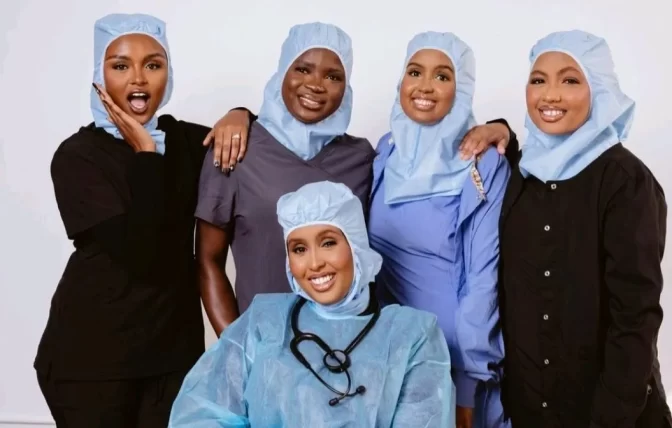
 "
"

 "
"

Two Minnesota-based respiratory therapists are making waves in healthcare by addressing a gap in personal protective equipment (PPE) for Muslim women. Firaoli Adam and Yasmin Samatar, both first-generation students and graduates of St. Catherine University in St. Paul, have created disposable, hygienic hijabs to ensure Muslim women in healthcare can maintain both their religious and professional standards.
The pair, who met while studying respiratory care, experienced firsthand the challenges of wearing traditional hijabs in clinical settings, particularly in sterile environments like operating rooms. “Having your hijab this long all over the place is not something that’s ideal because you’re bringing infection into the room,” explained Samatar. Without any proper PPE options for hijabs, they often had to tuck them in or bring multiple hijabs to work to change between patient visits.
The issue worsened during the COVID-19 pandemic, as the need for PPE became even more critical. “They had a beard cover. We looked at each other like, ‘They have a beard cover even?! Why not a hijab cover? Something has to be out there,'” Adam recalled. Unable to find a solution, the two decided to create one themselves, launching Mawadda in 2022— a company that produces disposable, hygienic hijabs designed specifically for healthcare workers.
Adam and Samatar emphasized that their mission goes beyond convenience—it’s about diversity, inclusion, and infection prevention in the workplace. “Diversity and inclusion is very important. We’re already stressed, we work in a stressful environment helping other people. Why not get the support? It’s also about infection prevention,” Adam said.
Since its launch, Mawadda has received orders from healthcare professionals across the U.S. and internationally. The duo hopes that more hospitals in Minnesota will adopt their innovative solution to make Muslim women feel more supported and valued in their roles. “Having the hijab there tells a Muslim woman you are supported in this hospital, and your voice and presence is valued. That sort of empowers you,” said Samatar.
In addition to their hijabs, Adam and Samatar are planning to launch a modest scrub line next year, featuring skirts, dresses, and other inclusive workwear options for Muslim women. Their goal is to help Muslim women feel empowered, comfortable, and confident as they continue to excel in healthcare.